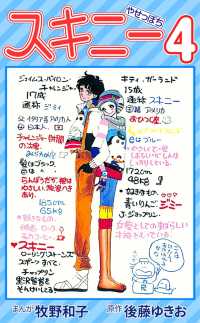- ホーム
- > 洋書
- > 英文書
- > History / World
基本説明
This book relates the experiences of the zanryu-hojin - the Japanese civilians, mostly women and children, who were abandoned in Manchuria after the end of the Second World War when Japan's puppet state in Manchuria ended, and when most Japanese who has been based there returned to Japan.
Full Description
This book relates the experiences of the zanryu-hojin - the Japanese civilians, mostly women and children, who were abandoned in Manchuria after the end of the Second World War when Japan's puppet state in Manchuria ended, and when most Japanese who has been based there returned to Japan. Many zanryu-hojin survived in Chinese peasant families, often as wives or adopted children; the Chinese government estimated that there were around 13,000 survivors in 1959, at the time when over 30,000 "missing" people were deleted from Japanese family registers as" war dead".
Since 1972 the zanryu-hojin have been gradually repatriated to Japan, often along with several generations of their extended Chinese families, the group in Japan now numbering around 100,000 people. Besides outlining the zanryu-hojin's experiences, the book explores the related issues of war memories and war guilt which resurfaced during the 1980s, the more recent court case brought by zanryu-hojin against the Japanese government in which they accuse the Japanese government of abandoning them, and the impact on the towns in northeast China from which the zanryu-hojin were repatriated and which now benefit hugely from overseas remittances from their former residents. Overall, the book deepens our understanding of Japanese society and its anti-war social movements, besides providing vivid and colourful sketches of individuals' worldviews, motivations, behaviours, strategies and difficulties.
Contents
1. Approaches to the Study of Zanryū-hōjin Part I: Structures 2. Historical Origins 3. Personhoods Formed in Rural China 4. Repatriation Since 1972 Part II: Families 5. Three Family Accounts 6. Family in Transition 7. Generational Tension & Personhood Developed in Japan Part III: Negotiation 8. Qiaoxiang Practices & Profiting from Kinship 9. Volunteerism & Activism 10. Conclusion: To What Extent They Have Transformed?








